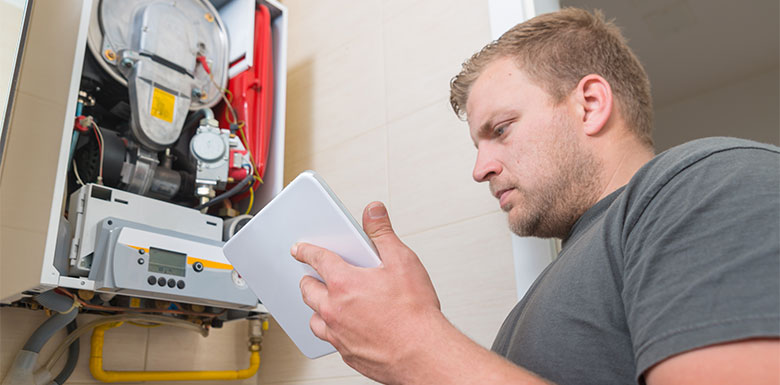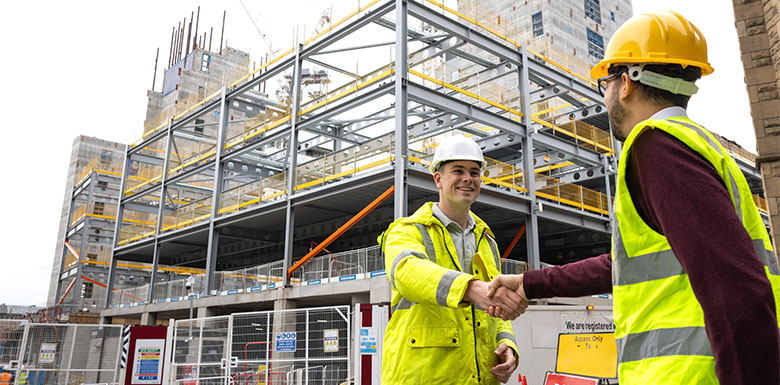The UK boiler tax: What was it and do you need to refund customers?
 In this article
In this article
If you’re a trader working in the gas and heating sector, then you’ve probably already heard about the recent implementation of the government’s Clean Heat Market Mechanism. Designed to encourage boiler companies to install more heat pumps across the country, it lowers their overall price and subsidises certain areas to help businesses foot the cost of this new technology.
However, while this new initiative is set to help make UK energy production more sustainable and affordable, it also had the unintended side effect of causing many of the major boiler companies to impose an additional boiler levy - or ‘tax’ – on certain products as a way to offset the potential impact of the scheme's fining system.
As a result, this wound up increasing boiler prices for both traders and homeowners. Worse still, due to unforeseen delays in getting the CHMM plan off the ground, this boiler ‘tax’ may actually have been an unnecessary step in the first place.
Put simply, the introduction of the CHMM and the brief existence of the boiler ‘tax’ have led to a lot of confusion around pricing and refunds in the industry. So, to help clear this up, we’ve broken down what you need to know about the boiler levy, and whether or not you’ll need to refund some of your customers in the future.
What was the UK boiler tax?
The UK boiler levy was a brief ‘tax’ implemented by major UK boiler companies between January and March 2024 that increased boiler prices by £120+ in order to counter the cost of any fines they might incur by failing to meet the demands of the government’s new Clean Heat Market Mechanism initiative.
Under the CHMM, boiler companies are now expected to increase the number of heat pump installations they carry out each year to 4% of their gross sales, with a fine of £3,000 being imposed per missed heat pump installation.
Naturally, meeting this threshold yearly is a big ask for any boiler company not yet investing in heat pumps. And while the CHMM does decrease the cost of manufacturing and installing this technology, many companies still decided to back the boiler levy as a way of accounting for these incoming fines.
When was the boiler ‘tax’ in effect?
Originally, the Clean Heat Market Mechanism was due to come into effect in 2024, though adjustments to the scheme and delays in its implementation meant that it couldn’t be enforced until April 2025.
However, in response to the first deadline, a large number of boiler manufacturers started increasing prices from 1 January 2024. But when it became clear that the CHMM would be delayed till April 2025, they revoked the levy in March 2024.
How has the boiler tax impacted customers?
As you can probably gather from the above, the only true net result of this boiler ‘tax’ was that homeowners ended up paying more for boilers than they otherwise would have if the larger boiler companies had simply waited to see the effect the CHMM would have had on their business.
And, to no one’s real shock, many customers are now seeking boiler tax refunds in recompense for the additional money they’ve had to spend on updating or maintaining their home’s heating system.
Thankfully, the government has made doing this a legal requirement for boiler companies, even though the ‘tax’ does not necessarily constitute a refund in the traditional sense of the word. But while customers might be getting their money back, how does this U-turn in price repayment affect tradespeople working in the boiler industry?
What does the boiler ‘tax’ refund mean for traders?
For traders whose core focus lies in traditional boiler installation, the good news is that boiler brands legally have to refund their businesses as well. However, the process to do so is a little more complex than you might expect.
Simply put, the vast majority of manufacturers typically don’t have direct relationships with their end-customers. Therefore, they will be expected to refund distributors, who will then refund installers, who should then be refunding customers.
Do you need to provide your customers with a refund?
Whether or not your business needs to provide customers with a boiler refund will come down to whether or not you decided to increase your prices to account for the boiler tax’s introduction. If you did, then you need to start doing so as soon as possible, as providing these refunds is a legal requirement for your business.
And many businesses have actually already gotten ahead of the curve on this, putting out clear statements on their plans to refund customers who qualify for such repayments. City Plumbing, for example, clearly laid out the situation and their refund plans for customers, stating that:
“Following the recent announcement about changes to the Clean Heat Market Mechanism, we’re offering our customers a quick and simple refund process for the added cost that was applied to any boilers by manufacturers for products purchased between 1 January 2024 and 21 March 2024.
‘If you have a credit account, this refund will be processed automatically and appear on your account balance at the end of your statement month. If you are a cash account customer (online or in a branch), and you purchased by credit or debit card, this will be refunded back onto your card as soon as we can. One credit note per invoice will be received.”
Their update even included a helpful table explaining how much the refund would be for each type of boiler, and confirmed that any other types of boiler sold that did not have a price increase added would not be eligible for a refund.
When is the boiler tax refund deadline?
Although there is no strict deadline for the boiler tax refund, if you’re a small business that decided to up your prices in response to the boiler ‘tax’, and are yet to dispense any refunds, then we’d recommend announcing your intention to do so to customers as soon as possible.
Clear communication and intention like this is essential for maintaining good customer relations, and you should aim for timely responses to any questions customers might have, letting customers know how and when you will be passing that money onto them, and how much they will receive.
Consider sending blanket emails to customers explaining what has happened, what your next steps will be, and, where possible, whether or not their money will be returned automatically. However, if this is not feasible, then the process for claiming their refund should be clear and simple.
Alternatively, if you didn’t pass on the boiler tax costs to your clients, or you didn’t sell the specific boilers that were impacted, then make sure that information is clearly visible on your website so that customers understand why they’re not eligible for a refund.
Improve your reputation as a Trusted Trader
A strange stumble in early 2024, it seems that any issues caused by the boiler tax are at least in the process of being resolved. Again, if you do owe customers a refund on their boilers, then you should look to sort this as soon as possible, as doing so will only improve your brand image and reputation.
And speaking of improving your reputation. Another great way to grow trust between you and your customers is by becoming a Which? Trusted Trader. By signing up, you’ll get access to your very own business page to display examples of your work alongside customer testimonies, as well as a dedicated account manager to help you run everything.
Speak with our team today to learn more about our vetting process, and don’t forget to visit our trade hub for more helpful articles like this one.




